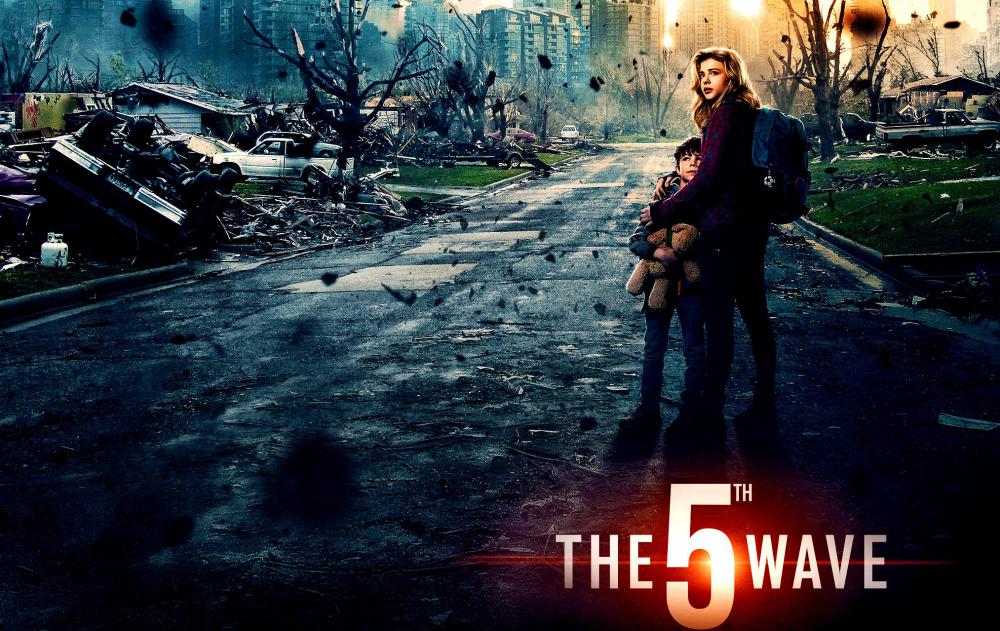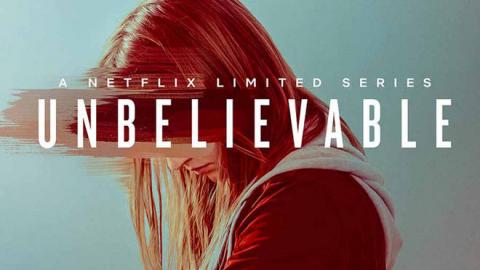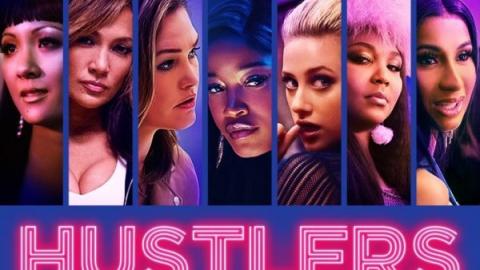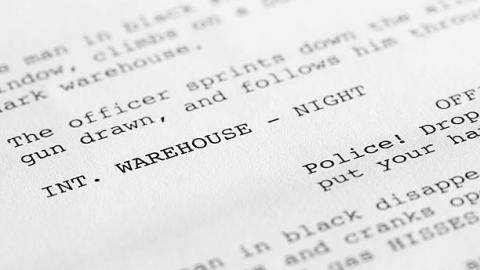Why The 5th Wave Movie Might Not Suck As People Think It Will
Share with friends

With the movie premiering tonight, a book reader tells us why it might not be another YA yawn...
[This article contains major spoilers for The Fifth Wave.]
People love The Hunger Games for the last reason a modern marketing executive would expect - because of its politics. Beneath the YA bait - the ever exploitable love triangle, the all-encompassing marketing, the strong female heroine - people may actually be attracted to The Hunger Games for the right reasons.
Yes, really. While teenagers everywhere have been drawn in by the series’ compelling lead, Katniss, and her personal struggles, you’ll find just as many Goodreads reviews praising Suzanne Collins’ treatment of class issues. Many YA efforts have attempted to copy Collins, with Divergent, The Maze Runner and even an ill-advised update of The Giver each mixing teen angst with revolutionary struggle. The results were decidedly vague and watered-down replicas, all missing the kind of core political allegory that made Collins' series so effective.
However, Rick Yancey’s popular The Fifth Wave is next in line and, though it may look like another fuzzy copy, it could offer more freshness and daring than we have every right to expect. That's because, like The Hunger Games, it's a thematically obsessed with an issue-of-the-day and it has something to say about it. The Hunger Games was about income inequality. In The Fifth Wave, it's the Iraq War.
At first glance, the trailer for The Fifth Wave indicates that it’ll blend right in with the rest of the YA post-apocalypses, with no clear unique features. A closer look at the source material, however, reveals a far more loaded take. It’s admittedly not nearly as incisive or effective as The Hunger Games, but it at least tries.
The Fifth Wave concerns Cassie Sullivan and Ben Parish, two teenagers who are affected in hugely different ways by an alien invasion that unfolds in multiple “waves,” beginning with a pulse that destroys most of Earth’s technology, and culminating in the aliens possessing the bodies of humans. Cassie absconds into the woods to survive the alien menace on her own and rescue her brother from a military compound after witnessing corruption and violence within a refugee camp, including the death of her father at the hands of one of the men running it. Ben, meanwhile, is recruited into the same military compound as Cassie’s brother and sent on missions to kill gatherings of aliens, known as Others. Unbeknownst to Ben, however, the compound is actually run by Others taking the form of humans who are simply brainwashing humans (primarily children) to kill other humans.
Yancey means for this to be an allegory for the Iraq War, particularly the portions addressing the conditioning of soldiers for combat with incomplete or inaccurate information about their objectives. When it comes to the moral grayness of armed combat, Yancey goes toe to toe with Collins. He doesn’t let Ben off the hook for his participation in the Others’ raids: the novel ends with him realizing the full weight of what he’s done. This is heavy stuff for a YA series, and it would be up there with The Hunger Games in the post-apocalyptic YA pantheon of quality if it weren’t for some rather crippling flaws that I won't bore you with here. Still, it's worth something that The Fifth Wave goes there, especially while the other dystopian YA franchises forego political commentary, taking everything from The Hunger Games except the most important part.
Take, for instance, the most obvious attempt to leach off The Hunger Games’: Divergent. In Divergent’s dystopian vision of Chicago, society is divided into five factions based on what’s essentially a flashy personality quiz, and your chosen faction ends up determining the course of the rest of your life. There’s a quarter-baked metaphor in there regarding the modern education system’s railroading of teenagers into set career paths from high school on, but it’s glossed over in favor of marketing-friendly rip-offs of the Hogwarts Houses.
The Maze Runner, the more male-centric Hunger Games knockoff, is even more bereft of commentary. It seems to be a Lord of the Flies meets Lost setup at first, with a gaggle of teenage boys dropped into a glade at the center of a gigantic maze by a shadowy organization for no discernible reason, but as the plot slowly, agonizingly unravels, it becomes clear that The Maze Runner doesn’t have anywhere near as much on its mind as either of its two most direct influences. The society that the boys create is mostly peaceful with only one “bad egg," so it doesn’t have the bite of Flies’ stinging insights into human nature’s basest instincts, and the characters are too thinly drawn for you to care about the greater Lost-style conspiracy. Instead, its attention is given more to action sequences that seem to drag on forever, a problem that only gets worse in the sequel, The Scorch Trials.
With these other cash-grab failures and the high degree of political unrest in the world, it may seem futile to hope that the film version of The Fifth Wave will be any good. But with a few tweaks in storytelling it easily could be a strong entry in the YA sci-fi canon, and help put to rest long-standing accusations that YA literature is devoid of substance. Of course, given that one of the co-writers, Akiva Goldsman, wrote Insurgent, that’ll be an uphill battle, but there’s always the chance he’s learned from his mistakes, right?
Right?




